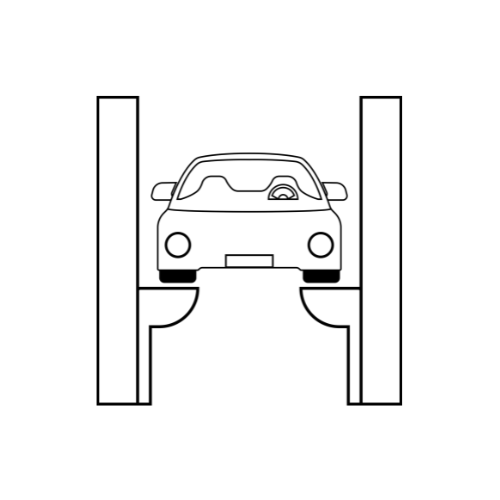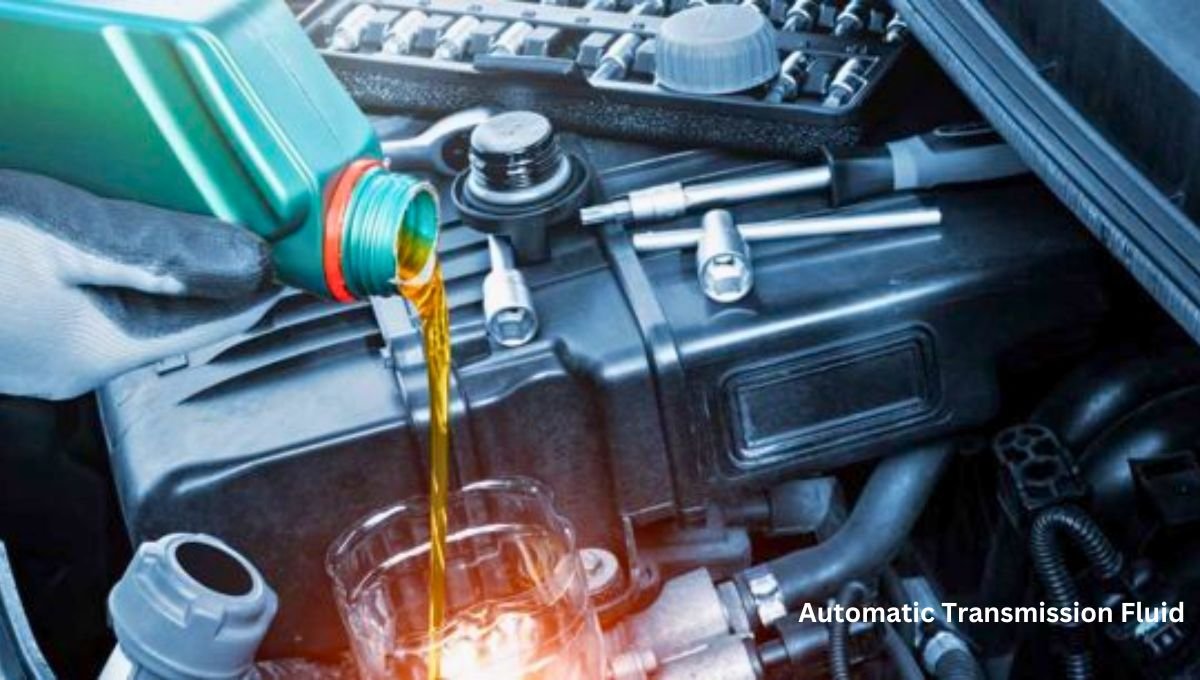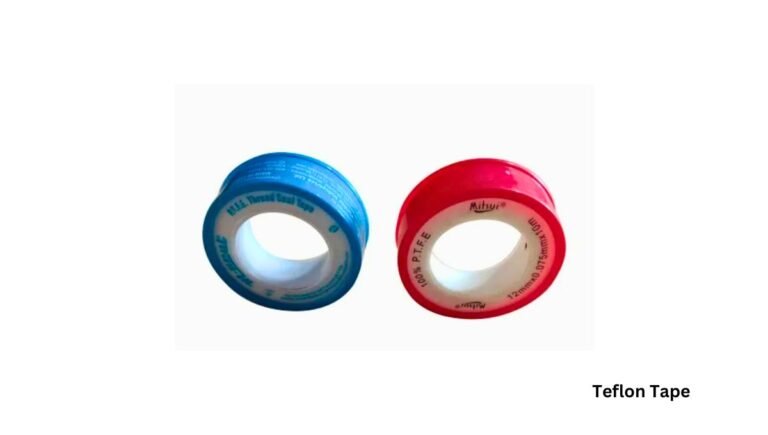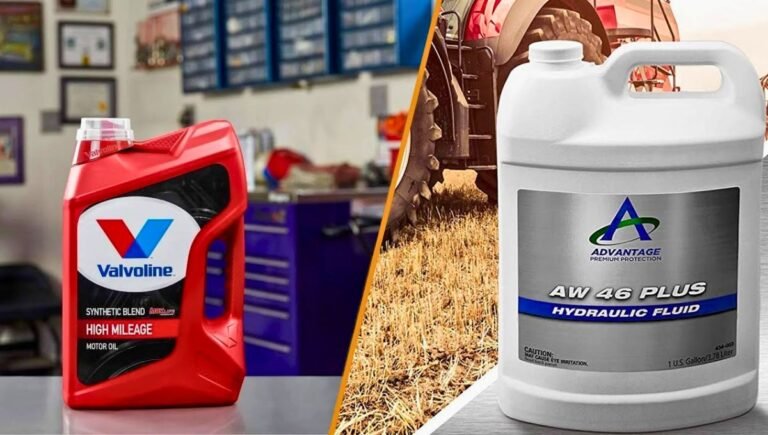Can You Use ATF As Hydraulic Fluid? Pros & Cons
Yes, you can use ATF (Automatic Transmission Fluid) as hydraulic fluid in some cases. Ensure compatibility with the system’s specifications.
Automatic Transmission Fluid (ATF) possesses properties that make it suitable for use as hydraulic fluid in certain systems. Its formulation includes friction modifiers, detergents, and anti-wear additives, enhancing performance and longevity. Many hydraulic systems, such as power steering and some industrial machinery, can safely operate using ATF.
However, always check the equipment manufacturer’s guidelines to avoid potential damage. Using the correct fluid ensures optimal system efficiency and longevity. ATF’s versatility and availability make it a convenient choice for various applications, provided it meets the necessary requirements.
Introduction To Atf And Hydraulic Fluid
Understanding the use of Automatic Transmission Fluid (ATF) as hydraulic fluid is essential. Both fluids play crucial roles in vehicle systems. This section introduces their definitions and purposes.

Defining Atf
Automatic Transmission Fluid (ATF) is a specialized fluid. It lubricates and cools the transmission system. ATF also helps in smooth gear shifts. It is essential for the proper functioning of automatic transmissions.
Purpose Of Hydraulic Fluid
Hydraulic fluid is used in various machinery. It transfers power within hydraulic systems. This fluid ensures efficient movement and operation. Hydraulic fluid also provides lubrication and reduces wear.
| Aspect | ATF | Hydraulic Fluid |
|---|---|---|
| Primary Use | Transmission systems | Hydraulic systems |
| Functions | Lubrication, cooling, shifting gears | Power transfer, lubrication |
| Compatibility | Automatic transmissions | Hydraulic machinery |
Chemical Composition Comparison
Understanding the chemical composition of ATF (Automatic Transmission Fluid) and hydraulic fluid helps in assessing their interchangeability. Knowing the key ingredients in these fluids reveals their unique properties and functions.
Key Ingredients In Atf
ATF includes several important ingredients:
- Base Oil: Typically mineral oil or synthetic oil.
- Detergents: Keep the transmission clean.
- Dispersants: Prevent sludge formation.
- Friction Modifiers: Ensure smooth gear shifts.
- Anti-Wear Agents: Protect components from wear.
- Anti-Foaming Agents: Reduce foam formation.
- Seal Conditioners: Maintain seal integrity.
Hydraulic Fluid Constituents
Hydraulic fluid contains different essential ingredients:
- Base Oil: Typically mineral oil or synthetic oil.
- Anti-Wear Agents: Minimize component wear.
- Corrosion Inhibitors: Prevent rust and corrosion.
- Anti-Foaming Agents: Reduce foam for efficient operation.
- Viscosity Index Improvers: Ensure consistent viscosity under temperature changes.
- Oxidation Inhibitors: Prevent oil breakdown.
Comparing Key Ingredients
| Ingredient | ATF | Hydraulic Fluid |
|---|---|---|
| Base Oil | Mineral/Synthetic | Mineral/Synthetic |
| Anti-Wear Agents | Yes | Yes |
| Detergents | Yes | No |
| Dispersants | Yes | No |
| Friction Modifiers | Yes | No |
| Corrosion Inhibitors | No | Yes |
| Seal Conditioners | Yes | No |
| Viscosity Index Improvers | No | Yes |
| Oxidation Inhibitors | No | Yes |
| Anti-Foaming Agents | Yes | Yes |
The chemical composition of ATF and hydraulic fluid shows distinct differences. These differences impact their performance in specific applications.
Viscosity And Performance
Understanding the viscosity and performance of fluids is crucial. Viscosity affects how a fluid flows and performs. This is especially important for automotive and hydraulic systems. Let’s explore the role of viscosity and how performance varies at different temperatures.
The Role Of Viscosity
Viscosity measures how thick or thin a fluid is. This impacts how easily it flows. Automatic Transmission Fluid (ATF) and hydraulic fluid have different viscosity levels. Thicker fluids provide better lubrication. Thinner fluids flow more easily. The right viscosity ensures smooth operation of machinery.
Performance At Different Temperatures
Temperature changes can affect fluid performance. ATF is designed to work well in a wide range of temperatures. Hydraulic fluids have specific temperature ranges for optimal performance. Cold temperatures can make fluids thicker. Hot temperatures can make them thinner. Both ATF and hydraulic fluid need to maintain performance despite these changes.
Here’s a quick comparison of ATF and hydraulic fluid performance at different temperatures:
| Fluid Type | Cold Temperature Performance | Hot Temperature Performance |
|---|---|---|
| ATF | Remains fluid, but thickens | Thins out but maintains lubrication |
| Hydraulic Fluid | Can become too thick to flow | May become too thin |
Use the table to understand fluid behavior at different temperatures. Choosing the right fluid is key for efficient machinery operation.
Atf In Hydraulic Systems
Automatic Transmission Fluid (ATF) is often used in various hydraulic systems. ATF has unique properties that make it suitable for some hydraulic applications. But is it always the best choice? This section explores the scenarios when ATF can be used, and the risks involved.

When Is It Appropriate?
Using ATF in hydraulic systems can be appropriate in certain situations. Consider the following:
- Emergency Situations: When no other hydraulic fluid is available.
- Compatibility: If the system is designed to handle ATF.
- Temperature Range: ATF can work well in a wide range of temperatures.
ATF offers good viscosity, which is crucial for hydraulic systems. It can also provide excellent lubrication and wear protection.
Risks And Considerations
Using ATF in hydraulic systems comes with some risks. Here are a few important considerations:
- Seal Compatibility: Some seals may degrade when exposed to ATF.
- Additives: ATF contains additives that may not suit all hydraulic systems.
- Cost: ATF can be more expensive than standard hydraulic fluids.
It’s vital to understand the system requirements. Always check the manufacturer’s recommendations before using ATF.
Assess these factors carefully to avoid damaging the hydraulic system. Proper usage ensures the longevity and efficiency of your machinery.
Pros Of Using Atf In Hydraulic Systems
Using Automatic Transmission Fluid (ATF) in hydraulic systems can be beneficial. ATF is designed for high-pressure environments. It contains additives that protect and enhance performance. Below are some advantages of using ATF in hydraulic systems.
Advantages In Certain Conditions
ATF works well in cold temperatures. It has a low pour point. This means it remains fluid in the cold. Hydraulic systems can operate smoothly with ATF. ATF also provides good lubrication. This reduces wear and tear on components.
Atf Additives And Their Benefits
ATF contains several additives that benefit hydraulic systems.
- Anti-Wear Additives: These protect metal surfaces from friction.
- Detergents: They keep the system clean by removing deposits.
- Corrosion Inhibitors: These additives protect metal parts from rust.
- Anti-Foaming Agents: They reduce foam formation, ensuring smooth operation.
Each additive enhances the hydraulic system’s performance. This makes ATF a versatile option for hydraulic applications.
| ATF Additive | Benefit |
|---|---|
| Anti-Wear Additives | Protect metal surfaces from friction |
| Detergents | Keep the system clean |
| Corrosion Inhibitors | Protect metal parts from rust |
| Anti-Foaming Agents | Reduce foam formation |
Using ATF in hydraulic systems provides multiple advantages. Its additives and properties make it a reliable choice.
Cons Of Using Atf In Hydraulic Systems
Using ATF (Automatic Transmission Fluid) as a substitute for hydraulic fluid can lead to several downsides. While it may seem cost-effective, it can cause significant issues in the long run. Below, we explore the potential damage and long-term effects of using ATF in hydraulic systems.
Potential Damage And Wear
ATF is not designed for hydraulic systems. It lacks the proper additives for this use. This can lead to increased wear and tear on the system components. Hydraulic systems require fluids with specific properties for optimal performance.
Using ATF can cause seals to degrade faster. This leads to leaks and inefficiency. Hydraulic pumps and valves may also suffer from premature wear. This can result in costly repairs and downtime.
Long-term Effects On Hydraulic Systems
The long-term effects of using ATF in hydraulic systems can be severe. Over time, the system may become less efficient. This leads to higher operational costs and potential system failure.
ATF can cause sludge buildup in the hydraulic system. This contaminates the fluid and damages internal components. Regular hydraulic fluid has detergents that help prevent this issue.
Using ATF can also affect the system’s temperature control. Hydraulic fluids are designed to manage heat efficiently. ATF may not provide the same level of thermal stability.
To summarize the potential long-term effects, see the table below:
| Potential Issue | Impact on System |
|---|---|
| Seal Degradation | Leaking and inefficiency |
| Increased Wear | Costly repairs and downtime |
| Sludge Buildup | Contaminated fluid and damage |
| Temperature Control | Reduced thermal stability |
Expert Opinions
Using ATF as hydraulic fluid sparks debate among experts. Let’s explore their views.
Mechanical Engineers’ Insights
Mechanical engineers highlight the differences between ATF and hydraulic fluid. They emphasize the unique formulations for each fluid. ATF includes detergents and friction modifiers. These additives help in automatic transmissions but are not needed in hydraulic systems.
Engineers note that ATF can work in hydraulic systems temporarily. However, it is not optimal. Long-term use of ATF can lead to wear and tear. Hydraulic systems need specific fluid properties. Using the wrong fluid can reduce system efficiency.
Hydraulics Specialists’ Views
Hydraulics specialists focus on system performance and fluid compatibility. They stress that hydraulic fluids are designed for specific tasks. ATF is not formulated for hydraulic systems. Specialists warn about potential damage and reduced lifespan.
They also point out the importance of viscosity. Hydraulic systems require precise viscosity levels. ATF may not meet these requirements. This can affect system performance and cause issues.
Specialists recommend using the right fluid for each system. This ensures optimal performance and longevity. They suggest consulting manuals and experts before substituting fluids.
Alternatives To Atf In Hydraulic Systems
ATF can serve as hydraulic fluid in some systems but isn’t always ideal. Better alternatives exist, like specially formulated hydraulic oils, ensuring optimal performance and longevity.

Using Automatic Transmission Fluid (ATF) in hydraulic systems is common. But there are better alternatives. These alternatives can enhance performance and extend equipment life.
Recommended Hydraulic Fluids
Choosing the right hydraulic fluid is crucial. Here are some recommended options:
- Mineral Oil-based Fluids: These are versatile and widely used. They provide excellent lubrication and are cost-effective.
- Synthetic Fluids: These offer superior temperature stability and longer service life. They reduce wear and tear on components.
- Water-based Fluids: Ideal for fire-resistant applications. They are safe but may require special handling.
- Biodegradable Fluids: These are eco-friendly and ideal for sensitive environments. They minimize environmental impact.
Making The Right Choice For Your Equipment
Choosing the right fluid depends on your equipment’s needs. Consider these factors:
| Factor | Considerations |
|---|---|
| Operating Temperature | Ensure the fluid can handle extreme temperatures. |
| Viscosity | Match the fluid’s viscosity to your system’s requirements. |
| Compatibility | Check if the fluid is compatible with system materials. |
| Environmental Impact | Choose biodegradable options for sensitive areas. |
To sum up, select the right fluid for optimal performance. This ensures better efficiency and longer equipment life.
Case Studies And Real-world Examples
Using Automatic Transmission Fluid (ATF) as hydraulic fluid can be a controversial topic. This section explores real-world examples and case studies. These stories provide insights into the success and failures of using ATF as hydraulic fluid.
Success Stories Of Atf Usage
Many industries have successfully used ATF as hydraulic fluid. These success stories highlight its versatility.
- Automotive Workshops: Mechanics often use ATF in hydraulic jacks. They find it easy to source and cost-effective.
- Agricultural Equipment: Farmers use ATF in tractors. It performs well in various weather conditions.
- Industrial Machinery: Factories use ATF in hydraulic presses. It provides consistent performance and reduces wear.
Failures And Lessons Learned
Not all experiences with ATF as hydraulic fluid are positive. Some failures provide important lessons.
| Scenario | Issue | Lesson Learned |
|---|---|---|
| Construction Equipment | Poor performance in cold weather | Choose fluid based on temperature range. |
| Hydraulic Lift | Seal deterioration | Check fluid compatibility with seals. |
| Power Steering System | Increased noise and vibration | Use fluid designed for the system. |
These examples show that while ATF can work, it is not always the best choice. Understanding the specific needs of your equipment is crucial.
Best Practices For Fluid Maintenance
Maintaining hydraulic fluids is essential for machinery longevity. Regular checks and proper maintenance ensure optimal performance. Understanding best practices helps prevent system failures and extends equipment life.
Regular Fluid Checks And Changes
Regularly check hydraulic fluid levels. Low levels can cause damage. Ensure the fluid is clean and free from debris. Contaminated fluid reduces efficiency and can harm machinery.
Follow a schedule for fluid changes. Old fluid can lose its properties. Replace it according to the manufacturer’s guidelines. This practice keeps the system running smoothly.
Use a clear container to inspect fluid color. Dark or milky fluid indicates contamination. Replace it immediately to avoid damage.
Tips For Ensuring Optimal Performance
- Use the right fluid type for your system.
- Store fluids in a clean, dry place.
- Label containers to avoid cross-contamination.
- Keep seals and gaskets in good condition.
- Regularly inspect hoses and connections for leaks.
Proper fluid maintenance leads to better performance. Follow these tips to keep your hydraulic system in top shape.
Using ATF as hydraulic fluid can be an option. Always consult your equipment’s manual. Ensure compatibility before making any changes.
| Action | Frequency |
|---|---|
| Check Fluid Levels | Weekly |
| Inspect for Contamination | Monthly |
| Change Fluid | As per Manufacturer’s Guide |
Can Atf Be Used As Hydraulic Fluid?
Yes, ATF can be used as hydraulic fluid. Both have similar properties but check compatibility with your system.
What Are The Differences Between Atf And Hydraulic Fluid?
ATF includes friction modifiers and detergents, while hydraulic fluid is more basic. Always check manufacturer recommendations.
Is It Safe To Mix Atf With Hydraulic Fluid?
It’s generally not recommended to mix ATF with hydraulic fluid. Always consult your equipment’s manual for guidance.
Are There Benefits To Using Atf As Hydraulic Fluid?
ATF can provide better lubrication and temperature stability. However, it may not be suitable for all systems.
Conclusion
Using ATF as hydraulic fluid can be a viable option in some situations. It’s essential to check compatibility with your system. Always refer to manufacturer guidelines before making any changes. Proper fluid selection ensures optimal performance and longevity of your hydraulic equipment.
Make informed decisions for the best results.







